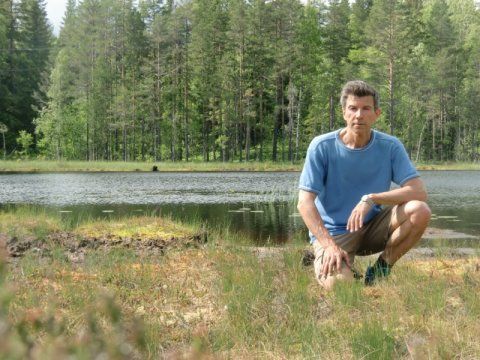Calcium Deficient Fauna and Brown Water Awaiting
Published on by Water Network Research, Official research team of The Water Network in Academic
Calcium deficient fauna, poor conditions for freshwater fish and mercury in the drinking water is the long-term consequences of acid rain in the 70ies and 80ies.
 Dag Hessen, professor at the Department of biosciences at the University of Oslo, is one of the researchers behind two new studies of the condition in Norwegian lakes. 70 lakes were investigated over the course of 30 years.
Dag Hessen, professor at the Department of biosciences at the University of Oslo, is one of the researchers behind two new studies of the condition in Norwegian lakes. 70 lakes were investigated over the course of 30 years.
According to Hessen the brown water is the long term consequences of three trends. First of all the reduced acid rain compared to the 70ies and 80ies.
Now that the sulphur pollution is reduces the water is less acid, but at the same time more organic material is leaking into the lakes.
In addition comes increased forest growth, which adds to the browning of water. On the top of all this more rain is resulting in increasing run off from land.
At the same time, and as a result of the same trends, Norwegian fresh water is becoming calcium deficient. This is a problem for many species as Norwegian rivers and lakes are already low on calcium.
"We are at risk of getting a calcium deficient fauna," says professor Dag Hessen.
Brown and calcium deficient water has consequences for life in the lakes. This does not only concern fish, but also algae and water plants that don´t get enough light. It also reduces the drinking water quality.
These results are apparent from two studies that are newly published with researchers from NTNU and NIVA. The plan is to expand the research to other northern countries that are experiencing the same development.
Dag Hessen underlines that the reduced sulphur pollution and acid rain reduction are environmental victories, even though the unwanted long term effects on the water quality shows that it can take a long time to get back to normal. The study also shows that there are side effects of forest growth.
"The fact that the water quality in Norwegian lakes are about to change considerably suggests that it is about time with a new and more investigation of the water quality in Norwegian lakes," says Hessen.
Source: Science Daily
Media
Taxonomy
- Water Pollution
- Lake Management
- Groundwater Pollution
- Air Pollution
- Pollution